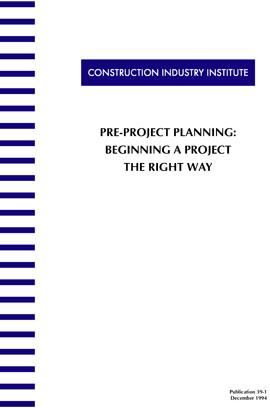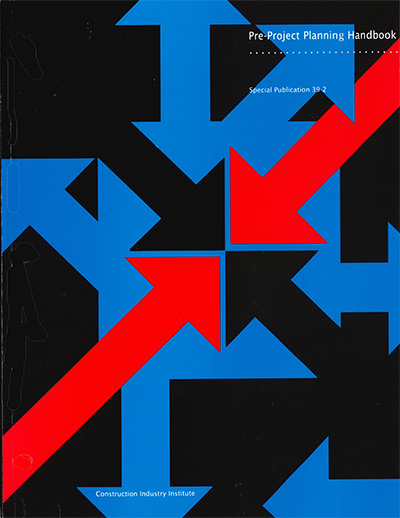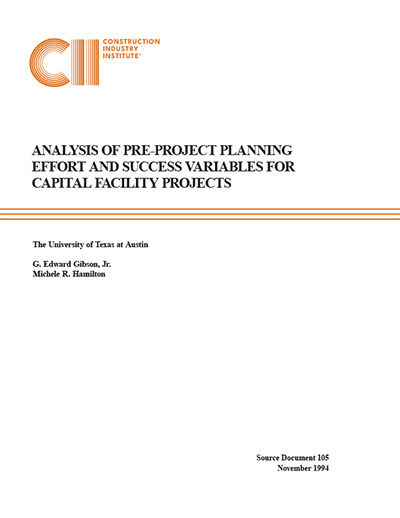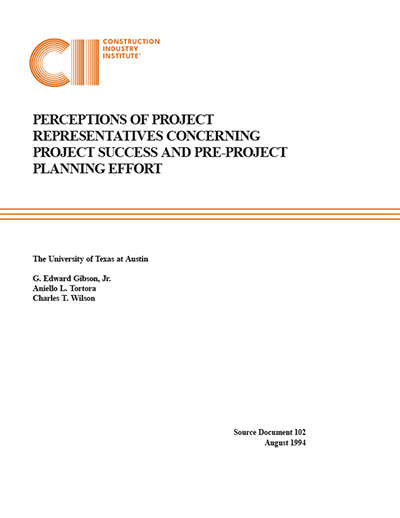
Pre-Project Planning: Beginning a Project the Right Way
Research conducted by the Pre-Project Planning Research Team indicates that well-performed pre-project planning can:
- Reduce total project design and construction costs by as much as 20 percent (versus authorization estimate).
- Reduce total project design and construction schedule by as much as 39 percent (versus authorization estimate).
- Improve project predictability in terms of cost, schedule, and operating performance.
- Increase the chance of the project meeting environmental and social goals.
The team has developed a pre-project planning process model outlining the major sub-processes. This publication gives an overview of the process, as well as guidelines and principles for implementing the process.
Six pre-project planning factors that significantly affect project success are outlined in this publication. Among these are the need to increase total project design work-hours completed to between 10 and 25 percent prior to project authorization; development of a written charter; project control guidelines developed; execution approach prepared; adequate number of organizations participating in pre-project planning, and pre-project planning plan in place.
The research team has also arrived at the following three conclusions:
- Pre-project planning is an owner-driven process that must be tied closely to business goals.
- Pre-project planning is a complex process that must be adapted to the business needs of the company, tailored to specific projects, and applied consistently to all projects in order to gain full benefits.
- Corporate goals and guidelines for both pre-project planning and the project must be well defined and aligned among project participants. Alignment requires involvement of operations, business, and project management early in the pre-project planning process. Key individuals must be empowered by management to act on these goals, as well as be accountable for their actions.
This research indicates a direct relationship exists between the level of pre-project planning effort and project success. The research team therefore encourages owner organizations and other professionals in the construction industry to understand the underlying pre-project planning process and act quickly and effectively to embrace its tenets.
Pre-project planning improves project predictability in terms of cost, schedule, and operating performance. (RS39-1, p.22)
- Improved cost predictability
- Improved schedule predictability
- Better attainment of operational and production goals in the first six months of operation
- Better achievement of business goals
- Better definition of risks
- Fewer scope changes
- Greatly reduced probability of project failures and disasters



